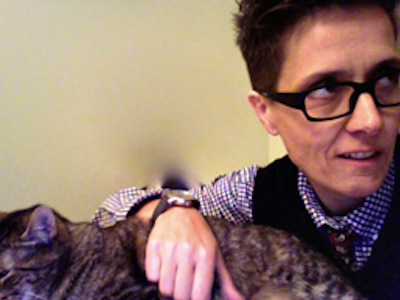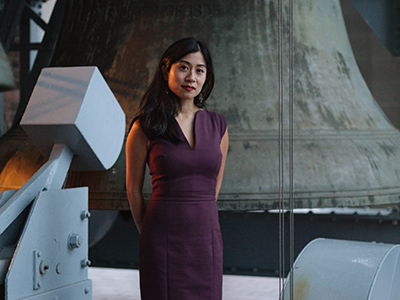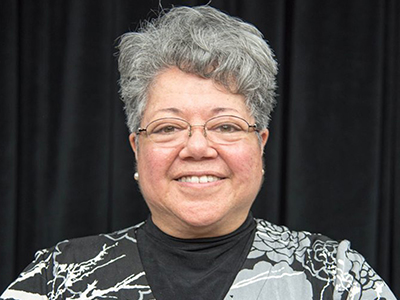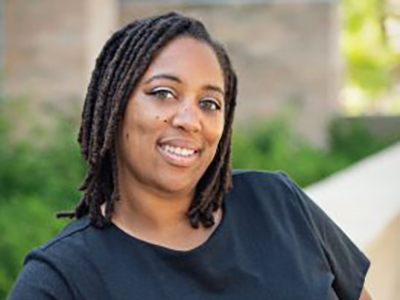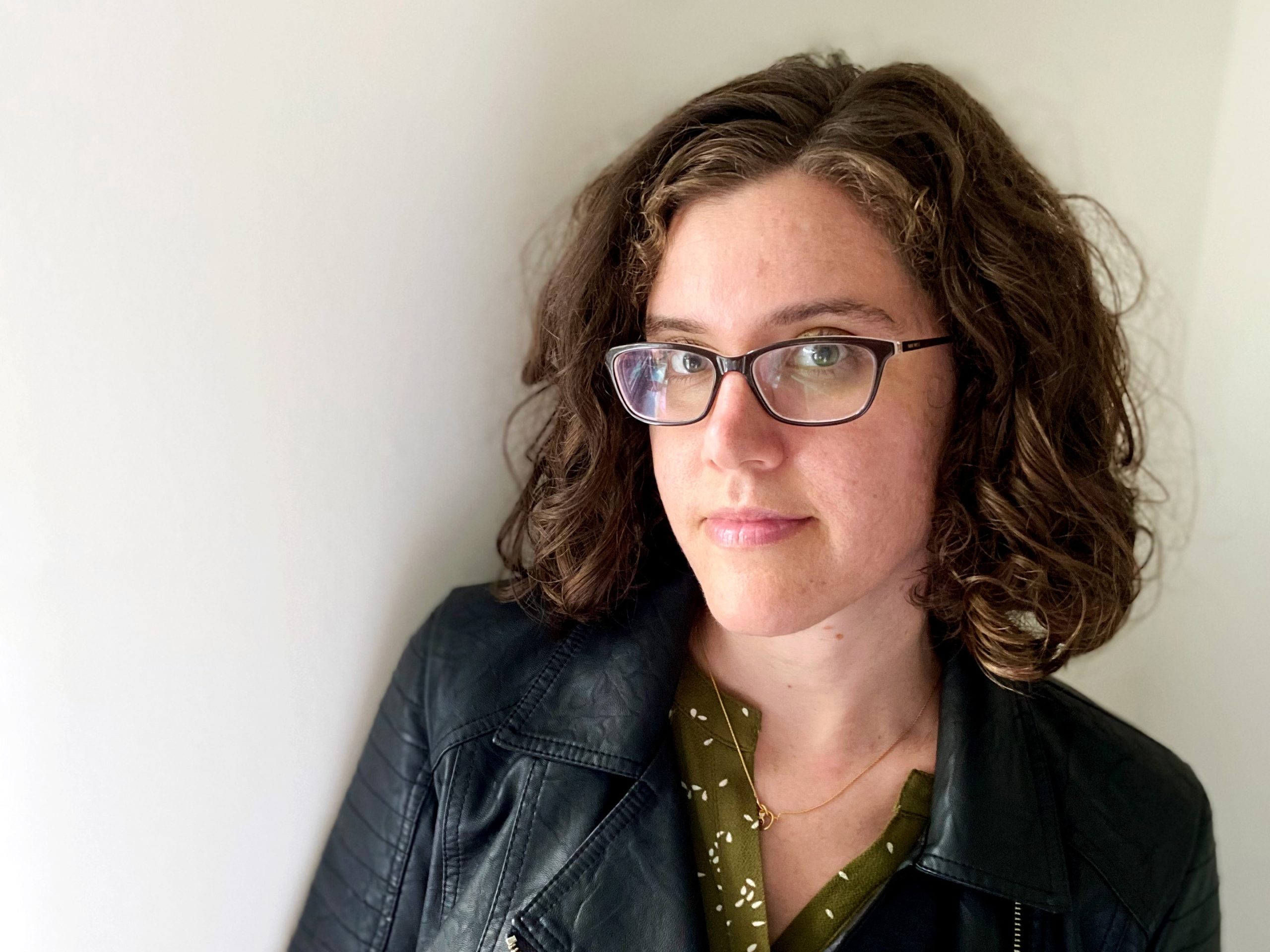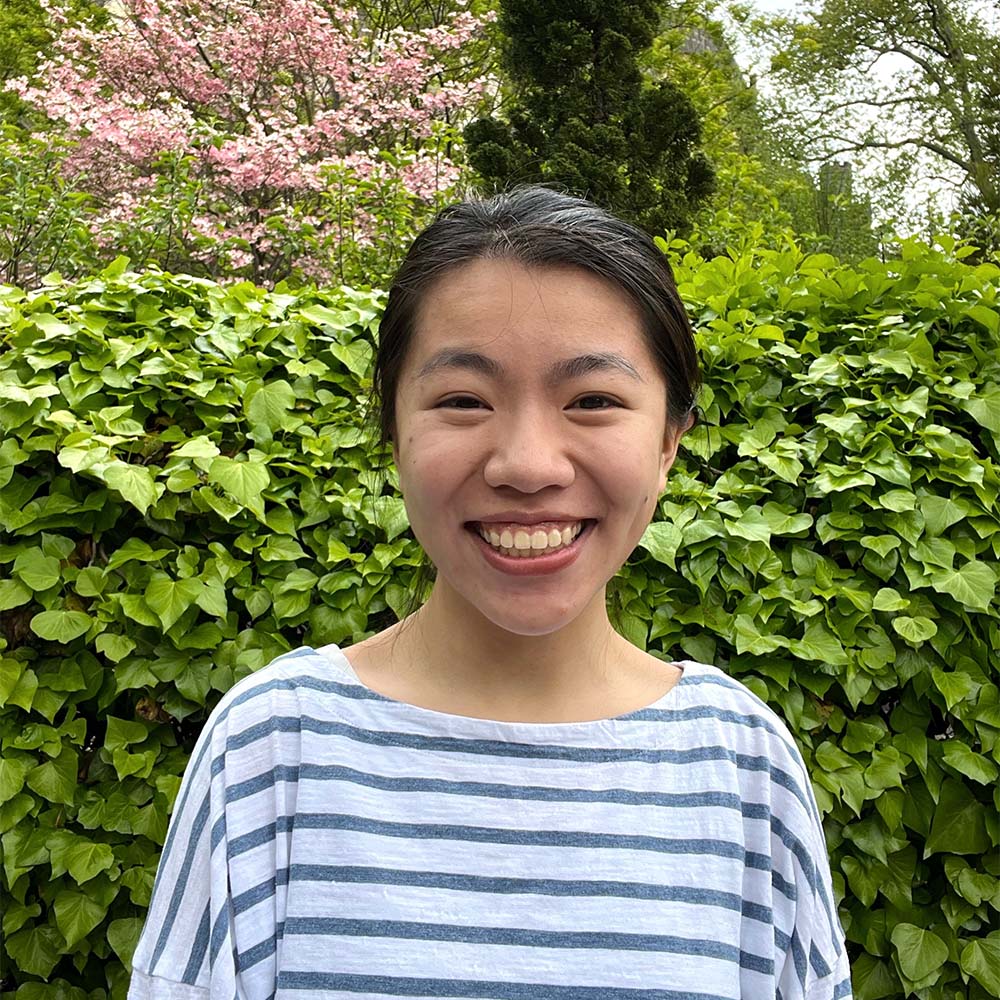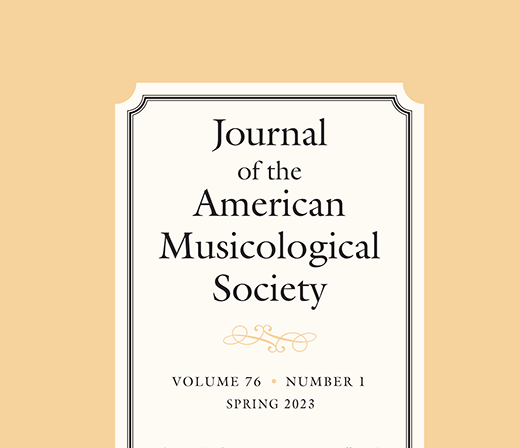Department of Musicology
The Department of Musicology offers graduate programs in historical musicology and ethnomusicology, and bachelor of music curricula in music history, ethnomusicology, and early music. Michigan’s internationally recognized faculty encourages its students to develop intellectually robust yet flexible plans of study cultivating individual interests and new fields of investigation. The wealth of intellectual and institutional resources include interdisciplinary centers on campus along with excellent performing ensembles that provide invaluable opportunities to perform and listen to repertories and traditional musics that are central to their scholarly work.
Faculty
The Musicology faculty at Michigan is diverse in its approaches and research practices. It embraces a wide variety of methods of inquiry–from manuscript studies, archival research, musical historiography, cultural history, and ethnography, to critical theoretical studies in music and gender, sexuality, and race. Faculty and students draw upon the University of Michigan’s programs in the Humanities and Social Sciences to engage in cross-disciplinary collaborations.
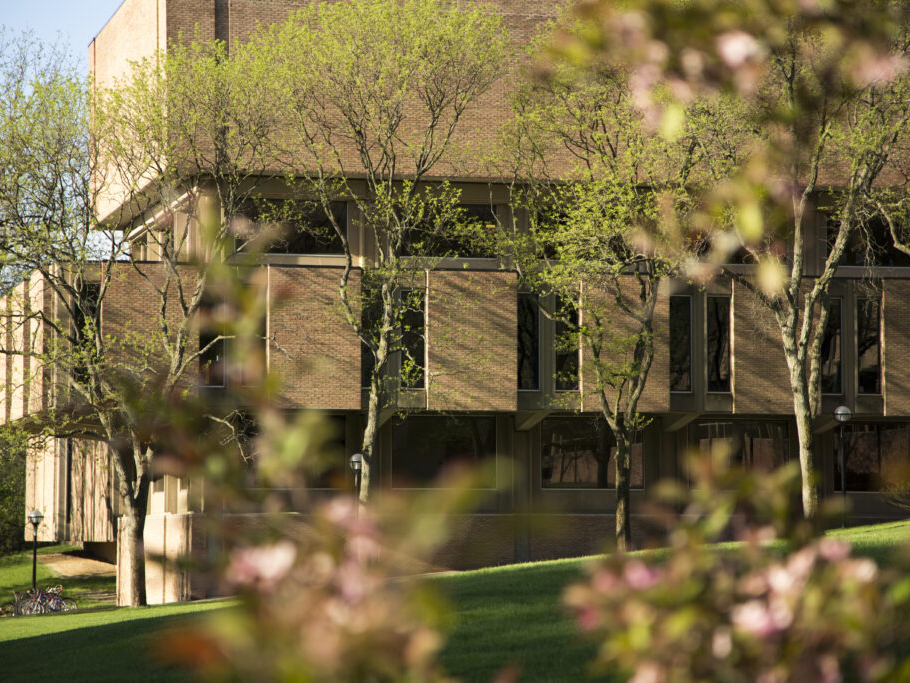
James Ryan Bodiford
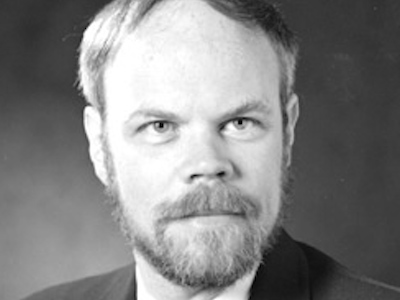
James M. Borders
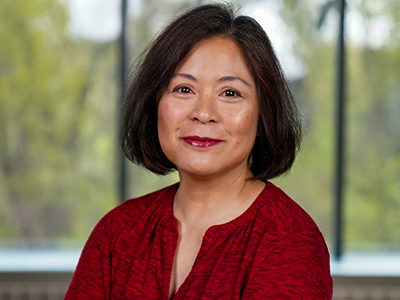
Christi-Anne Castro
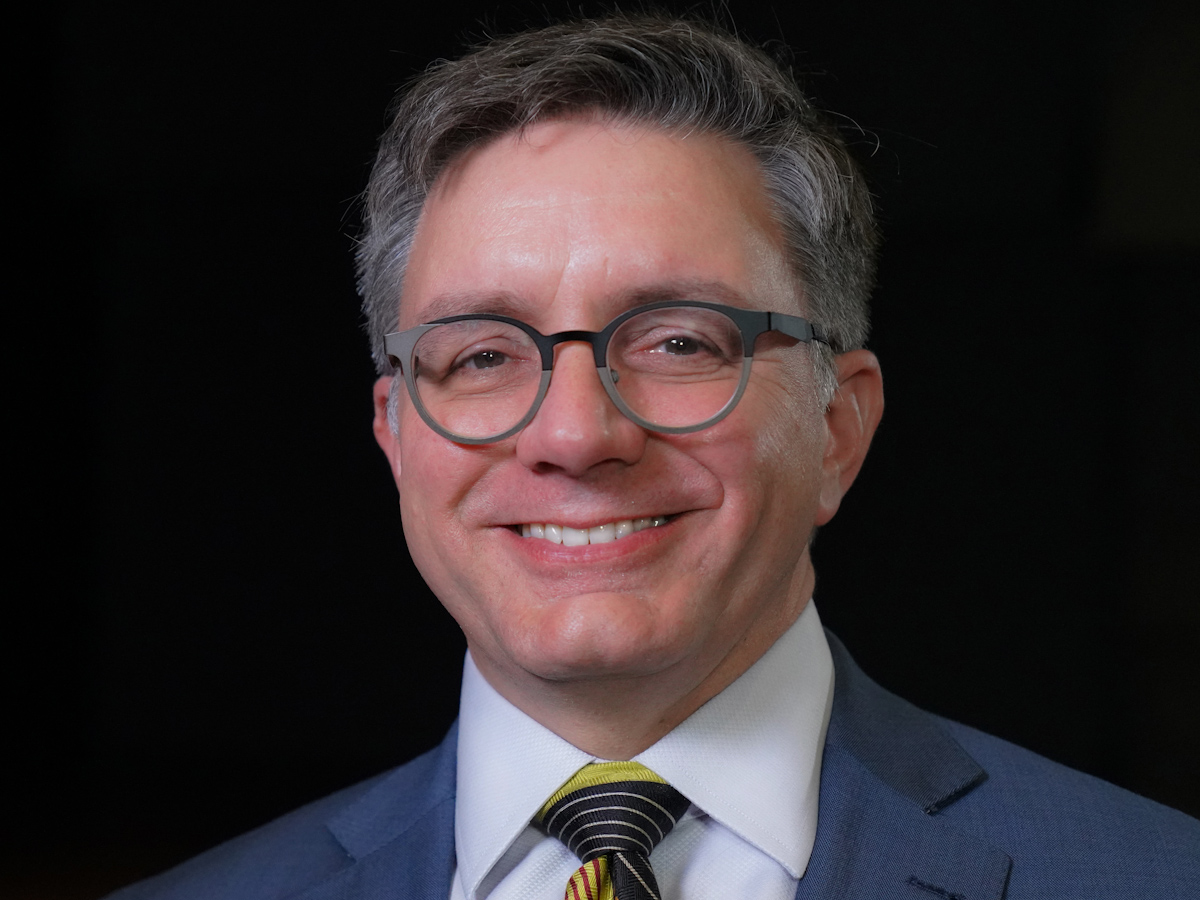
Mark Clague
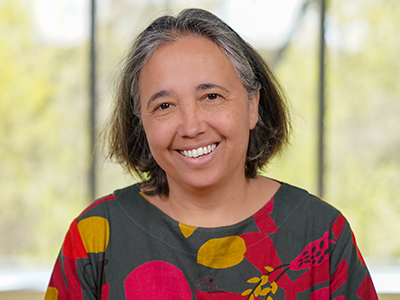
Gabriela Cruz
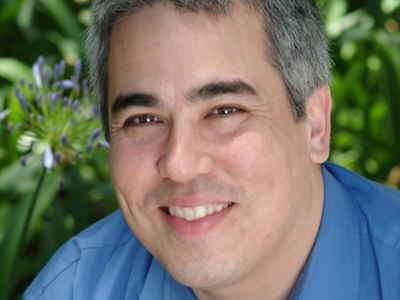
Charles Hiroshi Garrett
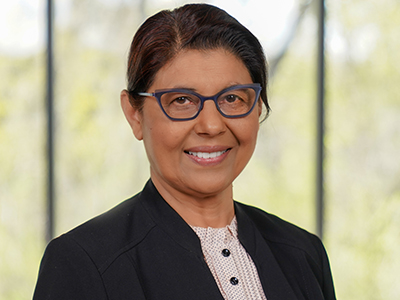
Inderjit Kaur
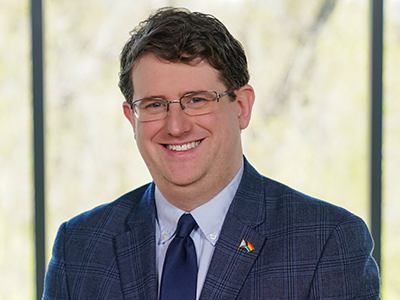
Andrew Kohler
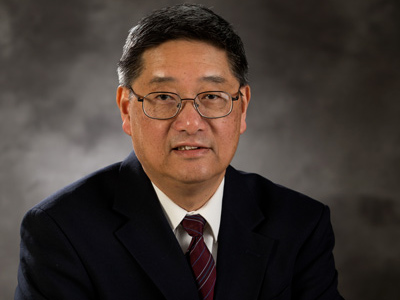
Joseph S. C. Lam
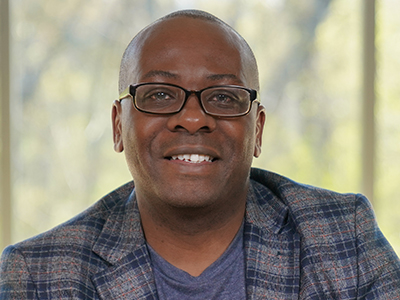
Charles Lwanga
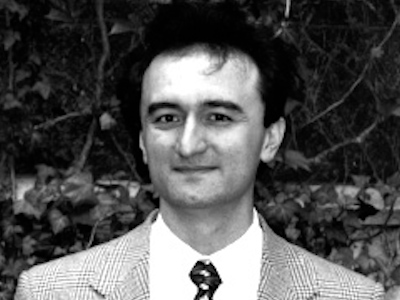
Stefano Mengozzi
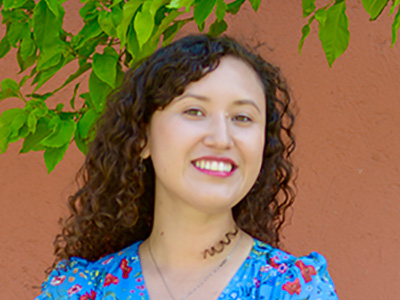
Diane Oliva
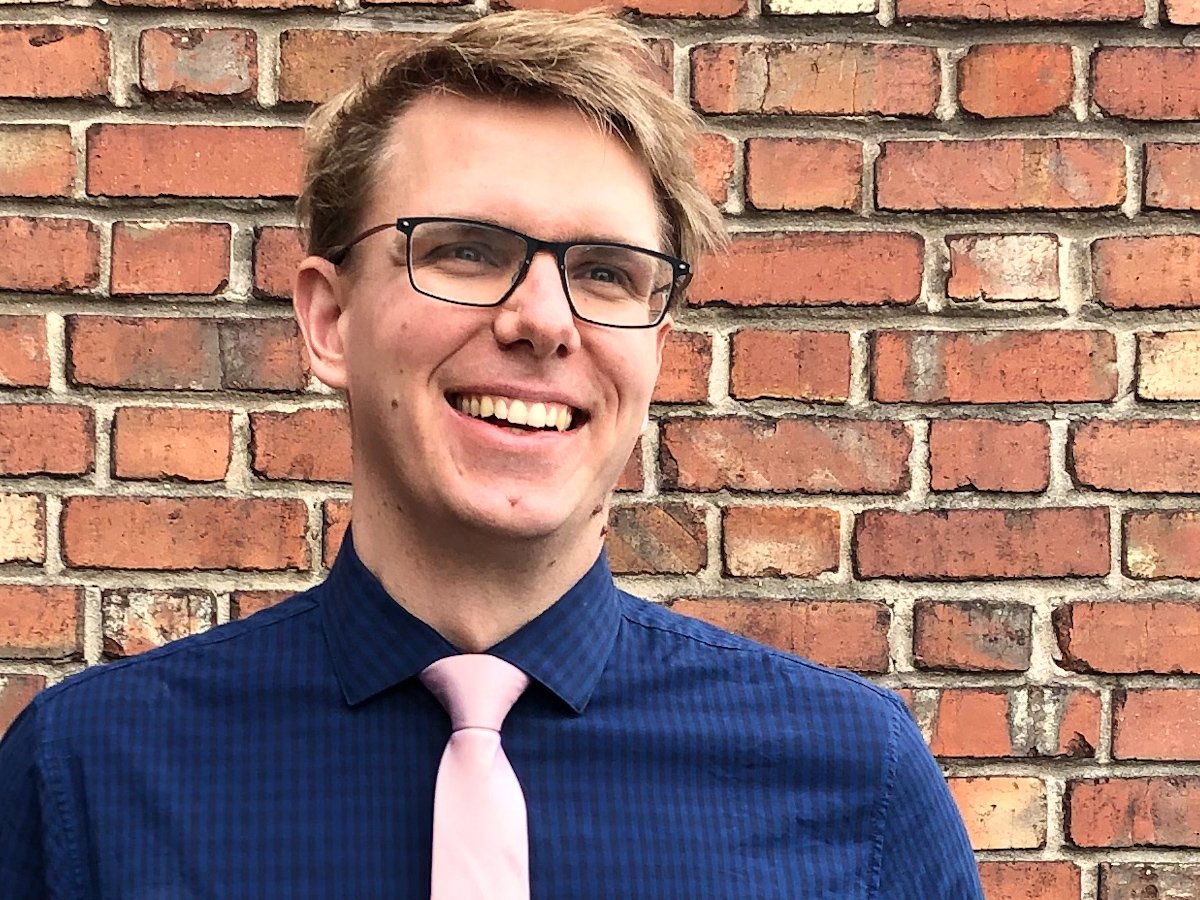
Mackenzie Pierce
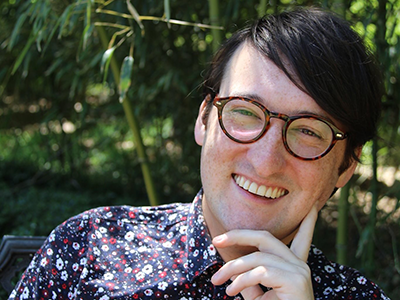
Henry Stoll
Associated Faculty
Nadine Hubbs
Professor of Music
Tiffany Ng
Associate Professor of Music, University Carillonist
Amy K. Stillman
Arthur F. Thurnau Professor of Musicology & American Culture (LSA)
Kira Thurman
Associate Professor of Music (SMTD), Associate Professor of History & German Studies (LSA)
Degrees
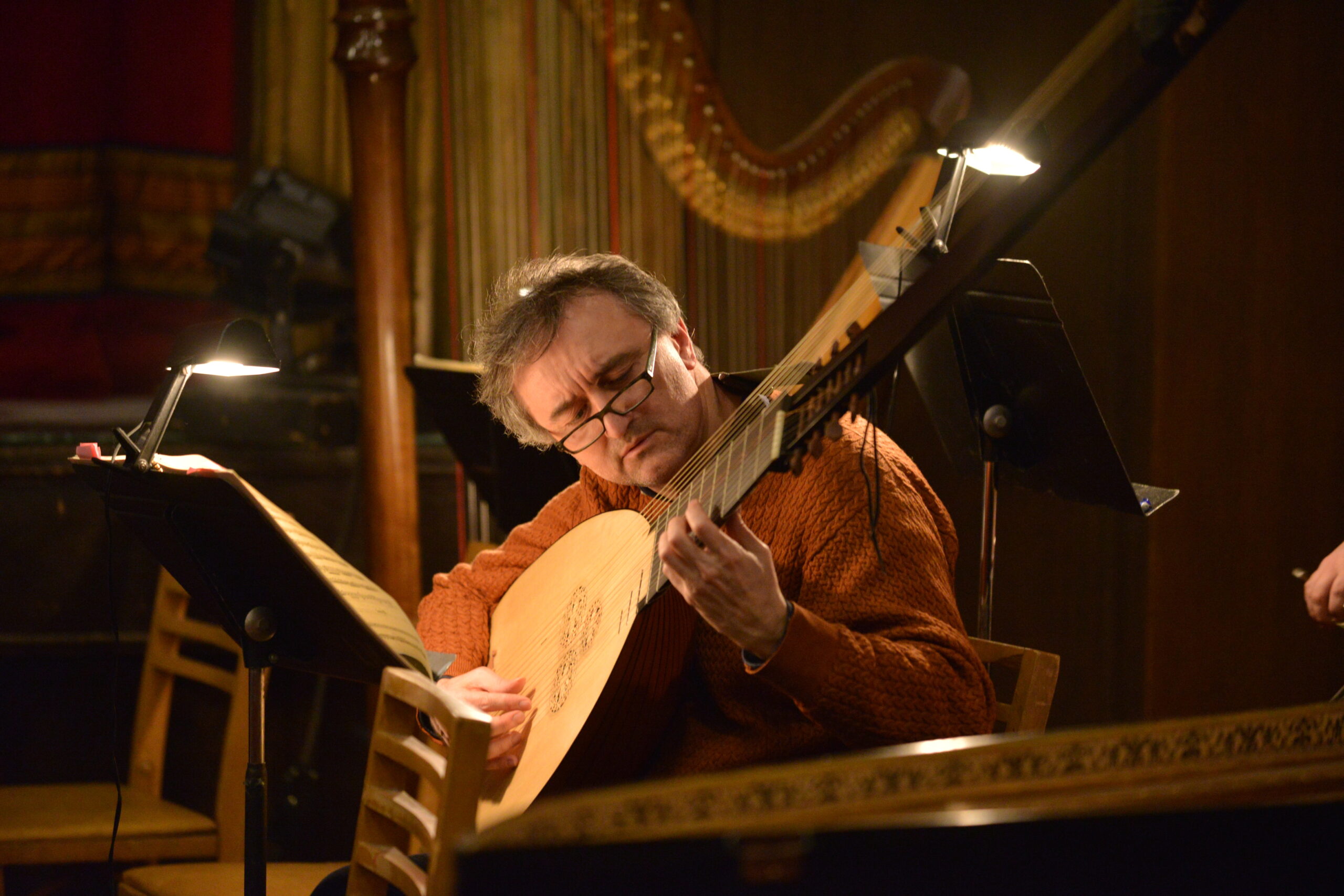
Graduate
Doctor of Philosophy
Certificate
Department History
Established in 1948, as part of the University of Michigan’s Rackham School of Graduate Studies, the musicology program developed through the 1950s under the leadership of Louise E. Cuyler and Raymond Kendall, with a faculty that included Hans T. David, H. Wiley Hitchcock, and Gordon Sutherland. In 1954, the university acquired the library of Belgian musicologist and collector Jean-August Stellfeld, whose 20,000 volumes, including rare prints, did much to provide a basis for the scholarly study of European music from the 16th century on.
During the 1960s, Glenn Watkins, Albert Cohen, and William P. Malm joined the musicology faculty, the latter introducing the study of ethnomusicology to the graduate program. In 1974, the musicology department merged with the School of Music, Theatre & Dance’s department of music history, which in earlier years had served only undergraduate and master’s students. That merger brought Richard Crawford, Judith Becker, David E. Crawford, R. John Wiley, Gwynn McPeek, and William J. Weichlein, among others, into an expanded department with students at all points on the academic spectrum. In the 1980s, James M. Borders and Louise K. Stein joined the department, followed in later decades by Joseph S. C. Lam, Lester P. Monts, Steven M. Whiting, and Jane Fulcher. More recently, the faculty ranks have been complemented by the addition of Christi-Anne Castro, Mark Clague, Gabriela Cruz, Charles Garrett, Inderjit Kaur, Charles Lwanga, Diane Oliva, Mackenzie Pierce, and Stefano Mengozzi.
Since the 1970s, the musicology program, as part of a major public university with a powerful music-making tradition (including a vigorous composition department), has graduated students with specialties in European music of several eras, American music of many stripes, and performance traditions from various parts of the world.
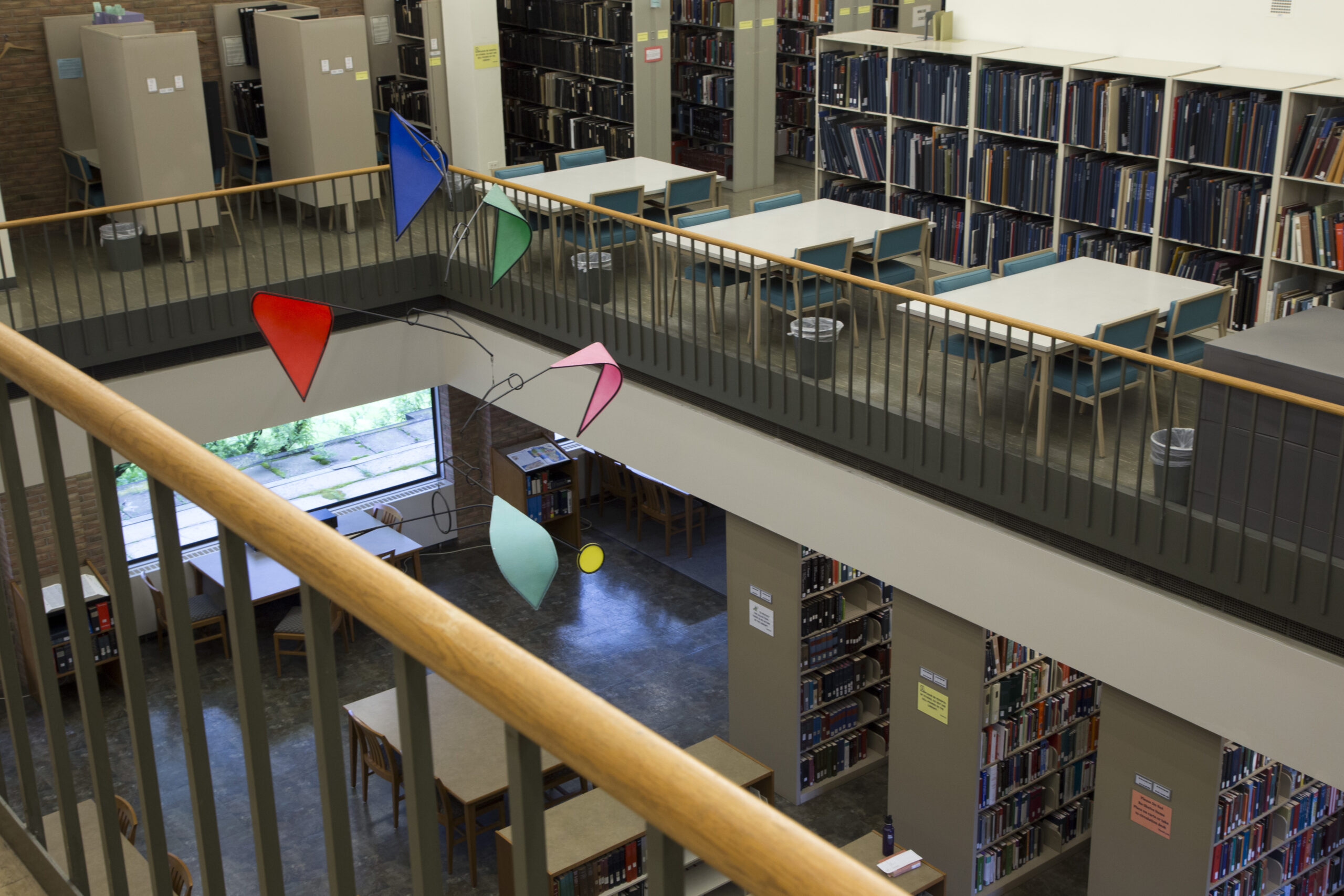
Lectures
Each year the department hosts public lectures presented by distinguished visiting scholars on a vast array of topics.
Ethel V. Curry Distinguished Lecture in Musicology
To date, the featured speakers for this prestigious series have included:
2022 Fred Maus (University of Virginia)
2021 Manuel Pedro Ferreira (Centro de Estudos de Sociologia e Estética Musical, Portugal)
2020 Timothy Rice (University of California, Los Angeles)
2018 Tim Carter and Annegret Fauser (University of North Carolina at Chapel Hill)
2016 Nicholas Cook (University of Cambridge)
2015 Ellen Koskoff (Eastman School of Music)
2013 Anne C. Shreffler (Harvard University)
2011 Jeff Titon (Brown University)
2009 Susan McClary (University of California, Los Angeles)
2008 Bonnie Wade (University of California, Berkeley)
2007 Karol Berger (Stanford University)
2006 Ingrid Monson (Harvard University)
2005 Steven Feld (University of New Mexico)
2004 James Hepokoski (Yale University)
2003 Philip Gossett (University of Chicago)
2002 Kofi Agawu (Princeton University)
2001 Christopher Waterman (University of California, Los Angeles)
2000 Glenn Watkins (emeritus, University of Michigan)
1999 Kay Shelemay (Harvard University)
1998 Anthony Seeger (Smithsonian Folkways)
1997 Richard Taruskin (University of California, Berkeley)
1996 Philip Brett (University of California, Berkeley)
1995 Maynard Solomon (emeritus, Graduate Center, City University of New York)
1994 Ruth Solie (Smith College)
1993 Margaret Murata (University of California, Irvine)
1992 Bruno Nettl (University of Illinois)
1991 Howard Mayer Brown (University of Chicago)
Musicology Departmental Lectures
Special speakers – sponsored by the department directly or with funding from the Lester P. Monts Diversity Lecture Series – have included:
2023
Dawn Avery (Montgomery College)
2022
Kevin Bartig (Michigan State University)
Francesa Brittan (Case Western Reserve University)
2021
Todd Decker (Washington University)
Marina Frolova-Walker (University of Cambridge)
Stephanie Shonekan (University of Maryland)
2019
Alessandra Campana (Tufts University)
Ed Goehring (Western University)
Benjamin Piekut (Cornell University)
Sonia Seeman (University of Texas – Austin)
2018
John Rice (Independent Scholar)
Kyra Gaunt (University at Albany, SUNY)
The Gershwins’ Porgy and Bess: A Symposium
Inderjit Kaur (University of California at Santa Cruz)
2017
Chris Chowrimootoo (University of Notre Dame)
Tomie Hahn (Rensselaer Polytechnic Institute)
Keith Howard (SOAS, University of London)
Stephanie Jordan (University of Roehampton)
2016
Jane Bernstein (Tufts University)
Thomas Irvine (University of Southampton)
Kate van Orden (Harvard University)
Holly Watkins (Eastman School of Music, University of Rochester)
2015
Kofi Agawu (Princeton University)
Dinko Fabris (Università della Basilicata and Conservatorio di Napoli, President IMS)
Michael Figueroa (University of North Carolina)
Barbara Haws (NY Philharmonic)
Glenn Watkins (University of Michigan)
2014
Sanjoy Bandopadhyay (Rabindra Bharati University, Kolkata)
Lorenzo Candelaria (University of Texas, El Paso)
Mark Clauge (University of Michigan)
Armand d’Anjour (University of Oxford)
Robert Fink (University of California, Los Angeles)
Berthold Hoeckner (University of Chicago)
Makikio Sakurai
J. Lawrence Witzleben (University of Maryland)
2013
Nathan Hesselink (University of British Columbia)
Maureen Mahon (New York University)
Anne Robertson (University of Chicago)
Barbara Haws (New York Philharmonic)
Michell Brodsky (Digital Archives)
John Rice (University of Michigan)
William Kinderman (University of Illinois)
Stefano Mengozzi (University of Michigan)
Jocelyne Guilbault (University of California, Berkeley)
David Locke (Tufts University)
2012
Susan Thomas (University of Georgia)
Mark Slobin (Wesleyan University)
Steven Whiting (University of Michigan)
Stephen Slawek (University of Texas at Austin)
Dennis Herlin (IRPMF/CNRS)
2011
Charles Carson (University of Texas)
Joseph Lam (University of Michigan)
Ellen Rosand (Yale University)
W. Anthony Sheppard (WIlliams College)
2010
James Borders (University of Michigan)
Walter Frisch (Columbia University)
James Grier (University of Western Ontario)
Keith Howard (University of Sydney)
Louise Meintjes (Duke University)
Thomas Turino (University of Illinois at Urbana-Champaign)
2009
Katherine Bergeron (Brown University)
Beverley Diamond (Memorial University in Newfoundland) and Paul-André Dubois (Université Laval)
Paul Andre Dubois (Université Laval)
Jane Fulcher (University of Michigan)
David Hughes (University of London)
2008
Peter Manuel (CUNY Graduate Center)
Carol Oja (Harvard University)
Louise Stein (University of Michigan)
2007
Sherrie Tucker (University of Kansas)
R. John Wiley (University of Michigan)
Richard Wistreich (Newcastle University)
2006
Judith Becker (University of MIchigan)
Katherine Hagedorn (Pomona College)
Martha Feldman (University of Chicago)
2005
Guthrie Ramsey, Jr. (University of Pennsylvania)
Ali Jihad Racy (University of California, Los Angeles)
Deborah Wong (University of California, Riverside)
Before 2005
Wye J. Allenbrook (University of California, Berkeley)
Thomas Bauman (Northwestern University)
Michael Beckerman (New York University)
Ellen T. Harris (Massachusetts Institute of Technology)
Daniel Herwitz (University of Michigan)
Sherri Jones (concert pianist) and Albrecht Reithmuller (Free University of Berlin)
Ana María Ochoa (Columbia University)
Anne Rasmussen (The College of William and Mary)
Rose R. Subotnik (Brown University)
Bell Yung (University of Pittsburgh)
Rob Wegman (Princeton University)
Dissertations
A historical list of dissertations published by graduates of the Department of Musicology.
Dissertations in Ethnomusicology
2021
Lisa Decenteceo, “From Being to Becoming: Protests, Festivals, and Musical Mediations of Igorot Indigeneity”
2019
James McNally, “São Paulo Underground: Creativity, Collaboration, and Cultural Production in a Multi-Stylistic Experimental Music Scene”
2018
Ho Chak Law, “Cinematizing Chinese Opera, Performing Chinese Identities, 1945-1971”
2017
J. Ryan Bodiford, “Sharing Sounds: Musical Innovation, Collaboration, and Ideological Expression in the Chilean Netlabel Movement”
2016
Megan Hill, “Asakusa Ondo: Soundscape, Agency, Montage, and Place in a Dynamic Tokyo Neighborhood”
2015
Elizabeth Batiuk, “Kinetic Conversations: Creative Dance-Music Performance and the Neotiation of Identity in Contemporary Havana, Cuba”
2014
M. Antonette Adiova, “Music, Dance, and Negotiations of Identity in the Religious Festivals of Bicol, Philippines”
2013
Bretton Dimick, “Vietnam’s Ca tru: Courtesans’ Songs by Any Other Name”
2011
Alexander Cannon, “Making Tradition Charismatic: Music, Memory and Alliance in Contemporary Southern Vietnam”
Yona Stamatis, “Rebetiko Nation: Hearing Pavlos Vassiliou’s Alternative Greekness in Rebetiko Song”
2010
John Behling, “Music Practices as Social Relations: Chicago Music Communities and the Everyday Significance of Playing Jazz”
Vera Flaig, ” The Politics of Representation and Transmission in the Globalization of Guinea’s Djembe”
Alyson Jones, ” Playing Out: Women Instrumentalists and Women’s Ensembles in Contemporary Tunisia”
2009
Hui-Hsuan Chao, “Musical Taiwan under Japanese Colonial Rule: A Historical and Ethnomusicological Interpretation”
2008
Joys Cheung, “Chinese Music and Translated Modernity in Shanghai, 1918-1937”
Jesse Johnston, “The Cimbalom (Cimbál) in Moravia: Cultural Organology and Interpretive Communities”
2007
Joshua Duchan, “Powerful Voices: Performance and Interaction in Contemporary Collegiate A Cappella”
Michal Rahfaldt, ” Music-Based Radio and Youth Education in South Africa”
2006
Julia Byl, “Antiphonal Histories: Performing Toba Batak Past and Present”
Stephanie Ng, “Filipino Bands Performing in Hotels, Clubs and Restaurants in Asia: Purveyors of Transnational Culture in a Global Arena”
2005
Kristina Benitez, “The Maguindanaon Kulintang: Musical Innovation, Transformation and the Concept of Binalig”
Katherine Brucher, “A Banda da Terra: Bandas Filarmónicas and the Performance of Place in Portugal”
Christopher Joshua Tucker, “Sounding Out a New Peru: Music, Media, and the Emergent Andean Public”
2004
Tamar Barzel, “”Radical Jewish culture”: Composer/improvisers on New York City’s 1990s Downtown Scene”
Lisa Jenkins, “Celtic connections: ‘Celticism’ in Scottish Music”
Dissertations in Historical Musicology
2022
Nathinee Chucherdwatanasak, “Creative Destruction, Perpetual Rebirth: Classical Music in the Early Twenty-First Century United States“
Elizabeth McLain, “The Apolitical as Political: Olivier Messiaen’s Theology, Intellectual World, and Aesthetic Agenda in the 1930s“
Alyssa Wells, “Falling Out of Step: Belonging, Grit and Drum Corps International’s Moment of Reckoning“
2021
Lena Leson, “Making an American Modernist: Franco-Russian Music Practices and Cold War Aesthetics in the Ballets of George Balanchine”
2020
Kristen Clough, “Opera in Crisis? Revealing the Cultural and Political Impact of French Fourth Republic Opera, 1945-1958”
Jessica Grimmer, “Political Battlefields in French Musical Education: Provincial Conservatories under the Nazi Occupation and Vichy Regime”
Patricia Prokert, “Interpreting Race and Difference in the Operas of Richard Strauss”
2019
Anne Heminger, “Confession Carried Aloft: Music, Religious Identity, and Sacred Space in London, c. 1540-1560”
Austin Stewart, “The Opera is Booming. This is a City.: Opera in the Urban Frontier of Denver, 1864-1893”
2018
Kathryn Cox, “‘What Happened to the Post-War Dream?’: Nostalgia, Trauma, and Affect in British Rock of the 1960s and 1970s”
2016
Sarah Suhadolnik, “Navigating Jazz: Music, Place, and New Orleans”
Leah Weinberg “Opera behind the Myth: An Archival Examination of Einstein on the Beach”
2015
Jessica Getman, “Music, Race, and Gender in the Original Series of Star Trek (1966-69)”
2014
Sarah Gerk, “Far Away O’er the Ocean Go Journeymen, Cowboys, and Fiddlers: The Irish in Nineteenth-Century American Music”
2013
Daniel Blim, “Patchwork Nation: Collage, Music, and American Identity”
Alison DeSimone, “The Myth of the Diva: Female Opera Singers and Collaborative Performance in Early Eighteenth-Century London”
Nicholas Field, “Outlandish Authors: Innocenzo Fede and Musical Patronage at the Stuart Court in London and in Exile”
2012
Rebecca Fulop, “Heroes, Dames, and Damsels in Distress: Constructing Gender Types in Classical Hollywood Film Music”
Michael Mauskapf, “Enduring Crisis, Ensuring Survival: Artistry, Economics, and the American Symphony Orchestra”
2011
Scott Southard, “Focalization and Masculine Subjectivity in the Early Operas of Benjamin Britten”
Shinobu Yoshida, “Modeling Heroines in Giacomo Puccini’s Operas”
2010
Timothy Freeze, “Gustav Mahler’s Third Symphony: Program, Reception, and Evocations of the Popular”
Nathan Platte, “Musical Collaboration in the Films of David O. Selznick, 1932–1957”
2009
Laura Kennedy, “Symphonies nos. 8 and 10 by Dmitri Shostakovich: A Study of Sketches and Drafts”
2008
Rebecca Schwartz-Bishir, “‘Musique Dansante’ and the Art of Ballet”
2007
Christopher Scheer, “Fin-de-siecle Britain: Imperialism and Wagner in the Music of Gustav Holst”
2003
Eric Saylor, “The Significance of Nation in the Music of Ralph Vaughan Williams”
2000
Amanda Eubanks, “Gender and Genre: Musical Conventions on the English Stage, 1660-1705”
1999
Mark Katz, “The phonograph Effect: The Influence of Recording on Listener, Performer, Composer, 1900-1940”
Departmental Awards
Each year the department recognizes outstanding academic achievements, supports student participation in conferences, and awards scholarships.
Louise E. Cuyler Prize in Musicology
The Louise E. Cuyler Prize in Musicology was endowed in 1987 by the late emerita professor and founding member of the department to honor outstanding achievement by graduate students in musicology. In 2022, the Cuyler prize competition expanded to three distinct prizes given each academic year.
The Louise E. Cuyler Prize in Musicology for Best Conference Presentation, which includes a cash award, recognizes outstanding achievement by a graduate student as demonstrated by a presentation at an AMS, SEM, SAM, or comparable meeting. Previous winners of the Cuyler Prize for Best Conference Presentation are not eligible to apply. Applicants for this award may not apply for other Cuyler Prizes in the same year. The deadline for submissions is February 1.
The Louise E. Cuyler Prize in Musicology for Best Article, which includes a cash award, recognizes outstanding achievement by a graduate student as demonstrated the publication of an article in a scholarly journal. Previous winners of the Cuyler Prize for Best Article are not eligible to apply. Applicants for this award may not apply for other Cuyler Prizes in the same year. The deadline for submissions is February 1.
The Louise E. Cuyler Prize in Musicology for Best Dissertation Chapter, which includes a cash award, recognizes outstanding achievement by a graduate student as demonstrated by a dissertation chapter. Ph.D. candidates who are currently enrolled (during the Winter term when the prize is adjudicated) are eligible to apply. Former graduates of the program and previous winners of the Cuyler Prize for Best Dissertation Chapter are not eligible to apply. Applicants should submit a single chapter (a finished chapter or polished draft) from their dissertation. Applicants for this award may not apply for other Cuyler Prizes in the same year. The deadline for submissions is February 1.
Past Recipients
Prize for article
Prize for conference presentation
- ’23-’24: Emma Beachy, “Anna’s Ghost All Around: Holocaust Memory and Music Reception in the Digital Age”
- ’23-’24: Kelly Hoppenjans, “’Doing Something Unholy’: Mainstreaming Queer Subculture on TikTok”
- ’22-’23: Kai West, “Kill This Machine: Wendy O. Williams, Phoebe Bridgers, and Feminist Guitar Smashing”
Prize for dissertation chapter
- ’23-’24: Julian Grey, “Non-Binary Drag: A Trans* Musicology of Sensation and Interperformativity”
- ’23-’24: Kai West, “Little Boxes: Collaborative Encounters with Guitar Pedals”
- ’22-’23: Michaela Franzen, “Sur le Borysthéne: Migratory Aesthetics and Neoclassical Ballet in Interwar Paris”
- ’22-’23: Conner Singh VanderBeek, “Talking Over Each Other: Misunderstanding Between Diasporic Punjabi Artists and Public Arts Institutions in Multicultural Canada”
- 21-’22: Elizabeth McLain, “The Apolitical as Political:”Olivier Messiaen’s Theology, Intellectual World, and Aesthetic Agenda in the 1930s”
- ’21-’22: Alyssa Wells, “Falling Out of Step: Belonging, Grit, and Drum Corps International’s Moment of Reckoning”
- ’20-’21 Lena Leson, “Dancing Envoys to Paris: George Balanchine, the Masterpieces of the Twentieth Century Festival, and the Congress for Cultural Freedom”
- ’19-’20 Kristen Clough, “Opera in Crisis? Revealing the Cultural and Political Impact of French Fourth Republic Opera, 1945-1958”
- ’18-’19 Austin Stewart “The Opera is Booming. This is a City: Opera in the Urban Frontier of Denver, 1864-1893”
- ’17-’18: James McNally, “‘Caostrópolis’: Material Engagements with the Urban Soundscape”
- ’16-’17: Katherine Cox, “‘Feelings of an Almost Human Nature’: Pink Floyd and Traumatic Narrative”
- ’15-’16: Ryan Bodiford, “‘Mi música no es un negocio (My music is not a business)’: New Media Transformations and the Arrival of the Netlabel as an Alternative Model of Music Diffusion”; Megan Hill, “Soundscape Montage: A New Model”; Leah Weinberg, “Playing American: European Patronage, Cultural Diplomacy, and the 1976 Tour”
- ’14-’15: Elizabeth Batiuk, “Dancing Solo as Heroic Self-making: Isnavi Cardoso Díaz and Choreographic Transvestisim in la Columbia”; Jessica Getman, “A Series on the Edge: The Social Tension in Star Trek’s Title Cue”
Combined prize
- ’21-’22 Kai West, “Buckra: Whiteness and Porgy and Bess“
- ’20-’21 Casper Chan, “The Chosen Kids: Children’s TV Shows and the Political Discourse of Hong Kong’s Millennials”
- ’20-’21Lisa Decenteceo, “Contesting ‘Igorotness’ and the Altered Significance of the Lang-ay Festival”
- ’20-’21 Alyssa Wells, “An Educational Example: Hanns Eisler’s Das Vorbild Revisited”
- ’20-’21 Chuyi Zhu, “Sing Like a Chinese Wife: Sonic and Bodily Memories in Tujia Bridal Lament”
- ’19-’20 Nathinee Chucherdwatanasak
- ’18-’19 Anne Heminger, “Music Theory at Work: The Eton Choirbook, Rhythmic Proportions and Musical Networks in Sixteenth-Century England.”
- ’18-’19 Lena Leson, “’I’m On My Way to a Heav’nly Lan’: Porgy and Bess as American Religious Export to the USSR”
- ’16-’17: James McNally, “Azealia Banks’s ‘212’: Black Female Identity and the White Gaze in Contemporary Hip-Hop”
- ’15-’16: Meredith Juergens, “‘Double Masked’ Minstrelsy in the Metropolitan Opera’s 1929 Production of Ernst Krenek’s Jonny spielt auf“
- ’14-’15: Ho-Chak Law, “King Hu’s Cinema Opera in his Early Wuxia Films”
- ’13-’14: Andrew Kohler, “Protest through Allegory: Carl Orff ’s Repudiation of Friedrich Hebbel in Die Bernauerin”; Elizabeth McLain, “Dreams of the Soul: Olivier Messiaen’s Nonconformist Catholic Surrealism in Chants de terre et de ciel (1939)”; Melanie Batoff, “The Visitatio sepulchri at the twelfth-century Saltzburg Cathedral: The Role of Musical Performance in Strengthening Community”
- ’12-’13: Daniel Blim, “Trauma, Absence, and Identity in John Adams’s On the Transmigration of Souls“; Sarah Suhadolnik, “Channel Surfing to the Top of the Charts: The ‘Extended’ Television Experience of Grey’s Anatomy”
- ’11-’12: Abby Anderton, “The Stars and Stripes of the Berlin Philharmonic: Classical Music and the American Cultural Agenda in West Berlin, 1945–47”
- ’09-’10: Alison DeSimone, “Medee et son pouvoir: Music and Dramatic Structure in Marc-Antoine Charpentier’s Medee (1693)”; Michael Mauskapf, “Bartók’s Concerto for Orchestra and the Rise of Collective Virtuosity”
- ’08-’09: Nathan Platte, “Deceptive Melodies: Musical Fetishes and Motivic Manipulation in The Paradine Case (1947)”
- ’07-’08: Jesse Johnston, “Folk Music and Modernism: Janacek and Folkloric Performance”
- ’06-’07: Joys Cheung, “The ‘Grand Chinese Evening’ Concert (1933) and Chinese Essence in Semi-Colonial Shanghai”
- ’05-’06: Sabina Pauta Pieslak, “‘Lenin in Swaddling Clothes:’ A Critique of the Ideological Conflict between Socialist State Policy and Christian Music in Romania during the Cold War”
- ’04-’05: Christopher Scheer, “For the Sake of the Union: The Nation in the Fourth Irish Rhapsody of Sir Charles Villiers Stanford”
- ’03-’04: Stephanie Heriger, “Surface and Subtext: Handel’s Susanna and the Pastoral Tradition”
- ’02-’03: Rebecca Schwartz-Bishir, “Alexander Nevsky: Prokofiev’s Successful Compromise with Socialist Realism”; Tamar Barzel, “If Not Klezmer, Then What? Jewish Music and Modalities on New York City’s Downtown Music Scene”
- ’01-’02: Julia Bÿl
- ’00-’01: Eric Saylor, “The Nature of Spirit: Subtexts in Vaughan Williams’s Pastoral Symphony”
- ’99-’00: Amanda Eubanks, “‘Speak Sister, Speak’: Music, Politics, and Gender in the Restoration Revivals of Macbeth”
- ’98-’99: Mark Katz, “Aesthetics out of Exigency: Violin Vibrato and the Phonograph”
- ’97-’98: Jennifer DeLapp, “Of Politics and Style: Copland’s Quartet for Piano and Strings”
- ’96-’97: Paul Munson
- ’95-’96: Mark Benamou
- ’94-’95: Robynn Stilwell
- ’93-’94: Roark T. Miller
- ’92-’93: Jeffrey J. Taylor, “Earl Hines’s Piano Style in the 1920s: A Historical and Analytical Perspective”
- ’91-’92: James M. Manheim
- ’90-’91: Timothy D. Taylor
- ’88-’89: Susan Pratt Walton
Louise E. Cuyler Award Travel Fund
The Louise E. Cuyler Award Travel Fund, supported by the annual revenues from the Louise E. Cuyler Endowment, seeks to assist with some expenses graduate students incur when they deliver papers at academic conferences sponsored by scholarly societies. Endowment support is only available in support of reading a formal conference paper; it is not available to support service on panels, committees, workshops, and other such functions.
Top funding priority will be assigned to papers presented at either international or national conferences. The definition of “national” is interpreted broadly, and certainly includes the annual meetings of the American Musicological Society, the Society for Ethnomusicology, and the Society for American Music. Applications for travel funding to present papers at regional conferences (such as a chapter meeting of a national society) are also encouraged. Please address questions concerning other conferences to the department chair, who will bring them to the department for consideration prior to application.
Along with an application form, please submit to the department chair the abstract submitted to the conference; a copy of the letter or email accepting the paper; and a proposed budget, estimating as precisely as possible the costs of conference registration, travel, and lodging. The Award does not cover meals. The faculty will review application materials on a revolving basis throughout the academic year. Preference will be given to applicants who also document requests for matching funds from other University sources. Please apply for funds after acceptance of the abstract but before the trip; please retain all receipts, which must be submitted within 3 weeks of travel (even in the summer).
Glenn McGeoch Memorial Scholarship in Musicology
The Glenn McGeoch Memorial Scholarship in Musicology was endowed in 1989 by his family, former colleagues, and students to provide scholarship assistance to graduate students in Musicology. In 2014, the McGeoch endowment expanded from a single annual scholarship to two distinct scholarships given each academic year. One scholarship is given annually to an outstanding graduate student instructor of SMTD music majors; the other scholarship is given annually to an outstanding graduate student instructor of non-majors. No applications are required. Previous recipients of a McGeogh scholarship are not eligible to receive the award a second time. The faculty will choose the scholarship recipients at the end of each school year.
Past Recipients
- ’23-’24 Emma Beachy (majors); Ingrid Racine (non-majors)
- ’22-’23 Sunhong Kim (majors); Clay Conley (non-majors)
- ’21-’22 Piper Foulon (majors); Cody Jones (non-majors)
- ’20-’21 Joshua Kerobo (majors); Alyssa Wells (non-majors)
- ’19-’20: Chuyi Zhu and Michaela Franzen (majors); Kai West (non-majors)
- ’18-’19: Richard Smith (majors); Casper Chan (non-majors)
- ’17-’18: Lena Leson (majors); Anne Heminger (non-majors)
- ’16-’17: Lisa Decenteceo (majors); Conner Vanderbeek (non-majors)
- ’15-’16: Megan Hill (majors); Austin Stewart (non-majors)
- ’14-’15: Mishona Collier (majors); Kristen Clough (non-majors)
- ’13-’14: Jessica Grimmer
- ’12-’13: Sarah Suhadolnik
- ’11-’12: Meredith Juergens
- ’10-’11: J. Ryan Bodiford
- ’09-’10: Michael Mauskapf
- ’08-’09: Kathryn Cox
- ’07-’08: Rebecca Fulop
- ’06-’07: Vera Flaig
- ’05-’06: Laura Kennedy
- ’04-’05: Colin Roust
- ’03-’04: Rebecca Schwartz-Bishir
- ’02-’03: Timothy Freeze; Sabina Pauta; Michal Rahfaldt
- ’01-’02: Adele Smaill; Julia Bÿl
- ’00-’01: Rebecca Schwartz-Bishir
- ’98-’99: Tamar Barzel
- ’97-’98: Suzanne Camino
- ’96-’97: Rose Pruiksma
- ’95-’96: Denise Pilmer Taylor
- ’94-’95: Tracey Laird
- ’93-’94: Christine Cochrane
- ’92-’93: Tara Browner
- ’91-’92: Robynn J. Stilwell
- ’90-’91; Julie Sommer Frascarelli
- ’89-’90: Kathryn Reed-Maxfield
Hans T. David Memorial Scholarship
The Hans T. David Memorial Scholarship, instituted in 2014, recognizes exceptional achievement by a precandidate graduate student in the Department of Musicology. The funds associated with the scholarship are used to help pay for the cost of a student’s tuition rather than to supplement a student’s funding package. No applications are required. The faculty will choose the scholarship winner at the end of each academic year.
Past Recipients
- ’23-’24 Angelina Gibson
- ’22-’23 Emma Beachy
- ’21-’22 Kelly Hoppenjans
- ’20-’21 Mayna Tyrell
- ’19-’20 Piper Foulon
- ’18-’19: Kai West
- ’17-’18: Casper Chan
- ’16-’17: Alyssa Wells
- ’15-’16: Nathinee Chucherdwatanasak
- ’14-’15: Jessica Grimmer
- ’13-’14: Austin Stewart
Our Stories
Show Your Support
Any gift to SMTD helps launch the next generation of artists, scholars, educators, and entrepreneurs who challenge and inspire the world.
You can support the Department of Musicology with a contribution to the Musicology Enrichment Fund.
Explore our Campus
Meet the people who make up this dynamic community.
Apply Now
Most applications for 2024-2025 are due by December 1 - check for exact dates on the appropriate admissions page below.
Program Costs, Financial Aid & Scholarships
Explore the many options available to make Michigan an affordable choice.

